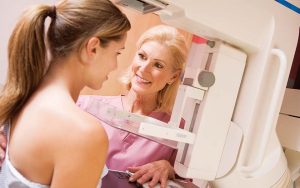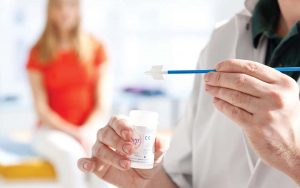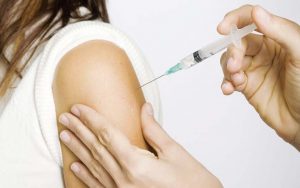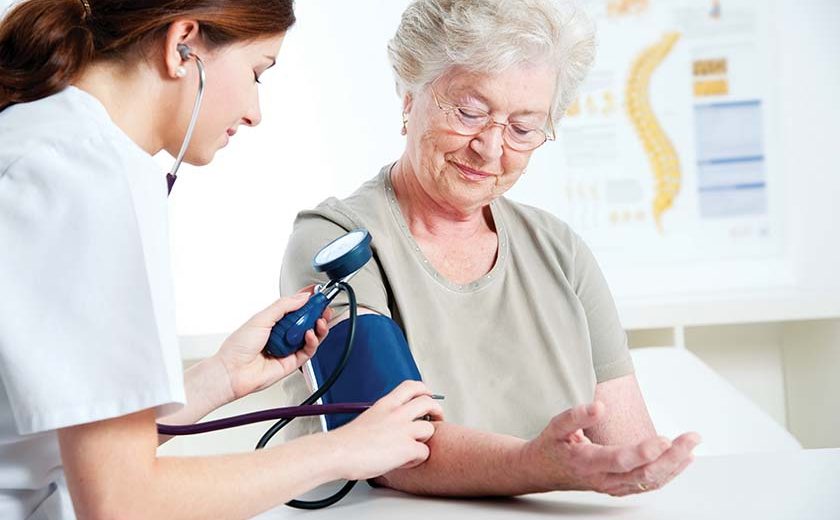Regular health care visits and screenings go a long way in preventing health issues, and are a must even for healthy individuals. Here is a list of important health screenings for women to help them be proactive about health.
Remember to consult a physician for specific personal guidance and suggestions on health screenings based on personal health history.
General Health
- Physical Examination
A physical examination screens for diseases, assesses risk for future problems, tracks lifestyle habits, and keeps vaccinations up to date. Discuss with a health care provider so that a physical checkup can be scheduled every 2-3 years. - Thyroid Test
This test helps in identifying an under- or overactive thyroid, both of which are treatable but can lead to serious conditions if left untreated. Thyroid tests should be taken after discussing with a personal physician.
Bone Health
- Bone Mineral Density Test
Osteoporosis usually show no obvious symptoms. Bone density screenings identify problems early, enabling treatment and preventing further bone loss. The density screening should be conducted at least once beginning at age 65 or earlier depending on each individual’s risk factors for osteoporosis.

Breast Health
- Mammogram
Having a mammogram helps in detecting signs of breast cancer and should be taken every 1-2 years starting at the age of 40. - Clinical Breast Exam
A good clinical breast exam can also help identify cancers relatively early, as all breast cancers are not detected by mammograms. These should be scheduled about every 3 years for women in their 20s and 30s, and every year for women 40 years and above.
Colorectal Health
- Colonoscopy
Colonoscopy helps to identify (and remove) precancerous polyps or early cancers. It is important to take this screening every 10 years starting at the age of 50. Alternatively a flexible sigmoidoscopy or double-contrast barium enema or CT colonography (virtual colonoscopy) can be scheduled every 5 years, although a colonoscopy will be needed if any of those results are positive. - Faecal Occult Blood Test
This test provides an early warning sign about colon cancer, although it is not as good as a colonoscopy in identifying cancerous or precancerous cells. It should be conducted annually starting at age 50 for the faecal occult blood test or the faecal immunochemical test while a stool DNA test may be given at intervals as recommended by the doctor. - Digital Rectal Exam
This is another kind of health exam that can help find early signs of colon cancer in the anal canal and lower rectum. However it is not recommended as the only test for colorectal cancer, due to its limitations. This can be taken every 5–10 years with each colon screening, from the age of 50.
Diabetes
- Fasting Plasma Glucose Test (also called Blood Glucose Test)
The blood glucose test provides an early warning sign of high blood sugar levels, which could mean an increased risk for diabetes. It should be scheduled every three years starting at age 45, but more often or earlier if the individual is overweight or at risk for diabetes.

Reproductive/Sexual Health
- Pap test
Pap test helps to identify risk for developing cervical cancer. It should be taken every 3-5 years for women of ages 21-65. Women aged 21-30 should get a Pap test every 3 years. Women over 30 should get a combined Pap test and HPV test every 5 years. If HPV testing is not available, then get a Pap test every 3 years. Screening may be stopped for women over age 65 who have been adequately screened with normal results and are not at high risk for cervical screening. Women whose cervix and uterus have been removed, should consult a health care provider to understand whether to continue screening. - HPV Test
HPV test in combination with the Pap test is better at identifying women at risk for developing cervical cancer than the Pap test alone. This test should be taken every 5 years along with Pap test in women of ages 30-65 (and in younger women with inconclusive Pap tests). - Pelvic Exam
Pelvic exam is a part of preventive screenings to assess lifestyle and health risks. Woman of and above age of 21 should take this examination annually. They should start younger if indicated by medical history. - Chlamydia Test
Testing for chlamydia helps prevent it spreading. Sexually active women under the age of 25 should take it annually, and after 26 years the test needs to be done if the individual has new or multiple sexual partners. - Sexually Transmitted Disease (STD) Screening
This screening helps prevent spread of HIV and other STDs, many of which can only be detected through testing. All sexually active women and their partners should be tested for HIV and other STDs before starting sexual activity.
Eye, Ear and Teeth Health
- Eye Exam
Eye exams should be taken at least once from ages 20 to 29 and at least twice between ages 30 and 39. At age 40, get a baseline eye disease screening. Based on results, follow ophthalmologist’s recommendations until age 65. After that, complete eye exam should be taken every one to two years. It tests the vision and screens for glaucoma and macular degeneration, two common often age-related conditions. - Hearing Test
This test should be taken beginning at age 18 and then once every 10 years until age 50. After 50 it should be taken once every three years. - Dental exam and cleaning
This helps to remove plaque and bacteria that could lead to tooth and gum disease and checks for tongue and mouth cancer. Problems with teeth can also indicate osteoporosis. Take this test at least once a year although twice a year would be ideal.

Immunisations
- Influenza (flu) vaccine
The vaccine protects against flu viruses and should be taken annually for all above 6 months. - Hepatitis A
This vaccine protects against hepatitis A, a serious liver disease that can cause flu-like illness, jaundice and severe stomach pains and diarrhoea. It is given in two doses, 6-18 months apart, to children of one year of age and to adults at risk or who want protection from Hepatitis A. - Hepatitis B
This vaccine protects against hepatitis B, a serious liver disease that can develop into a chronic infection. It is given to children in three doses at birth, one and six months. Also given to children or adults who weren’t vaccinated and are at risk for hepatitis B, such as health care workers. - Herpes Zoster
A single shot at 60 years or above prevents shingles. - Human papillomavirus (HPV)
This vaccine protects against four common types of HPV, including the two most likely to cause cervical cancer. It is given at age 11–12 or 13–26 if not previously vaccinated. Three doses are given at 0-, 2- and 6-month intervals and no booster is necessary. - Pneumonia
A single shot at 60 years or above protects against pneumonia.
Tetanus, Diphtheria, Pertussis (Td/Tdap)
This vaccine protects against tetanus, diphtheria and pertussis and should be taken every ten years. - Meningococcal
Meningococcal vaccine offers protection against some types of meningococcal disease (meningitis) and should be taken by college freshmen, military recruits and other at-risk persons - Varicella (chickenpox)
This vaccine protects against chickenpox, a usually mild but highly contagious childhood disease, which can be serious in infants and adults. It should be taken in two doses at 0- and 4- to 8-week intervals. It should be given to those 19 or older and have not been vaccinated or had chickenpox.
Heart Health
- Blood Pressure Screening
Blood pressure screenings help to detect hypertension and should be taken at least every two years. - Cholesterol Screening
This test helps in identifying cholesterol abnormalities and can help reduce risk of heart disease. Start screening every 5 years from the age of 35, but smokers, obese individuals and those with diabetes, high blood pressure or have a family history of heart disease should start from the age of 20.
References:
www.healthywomen.org
www.mayoclinic.com
www.webmd.com


